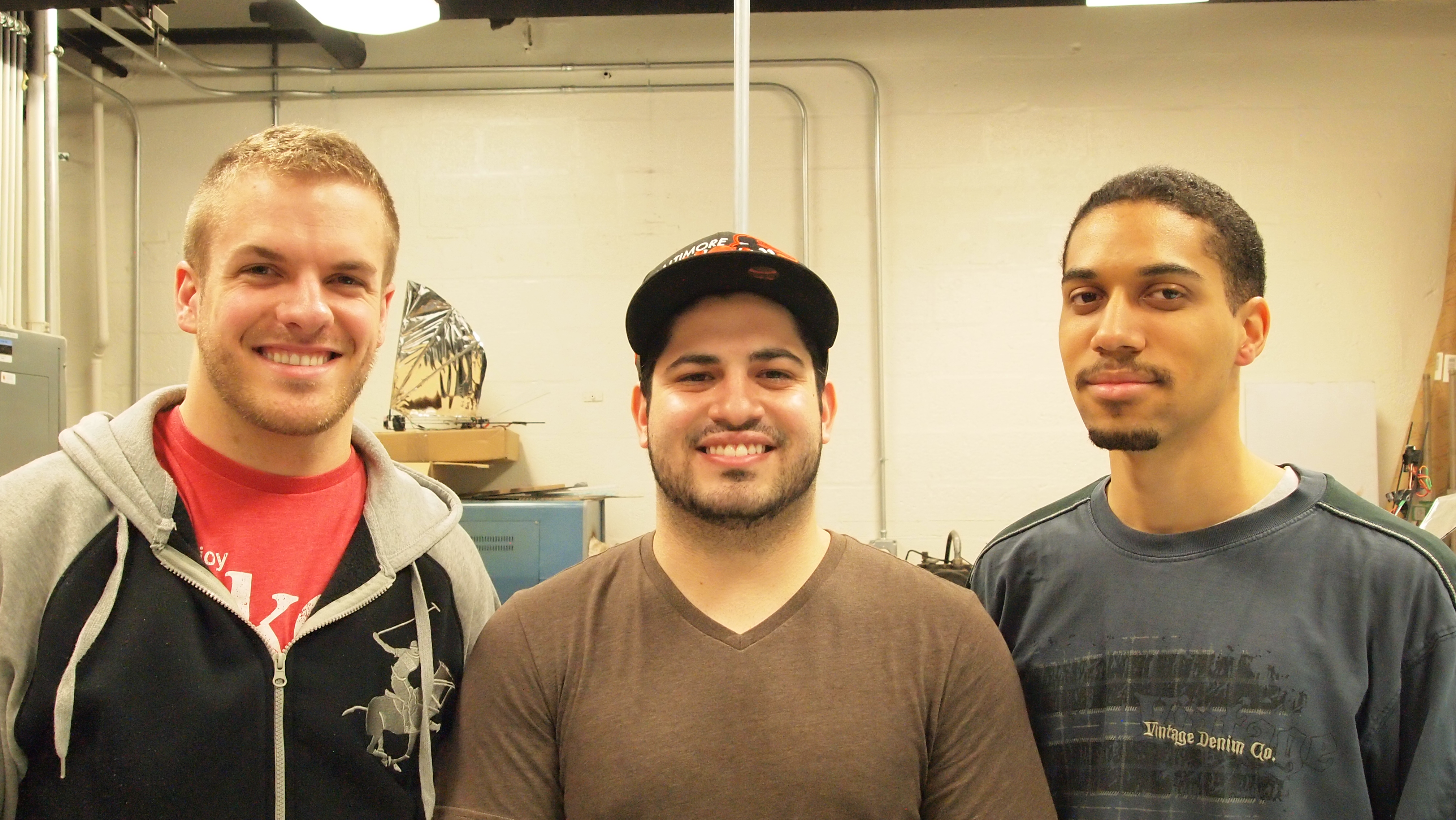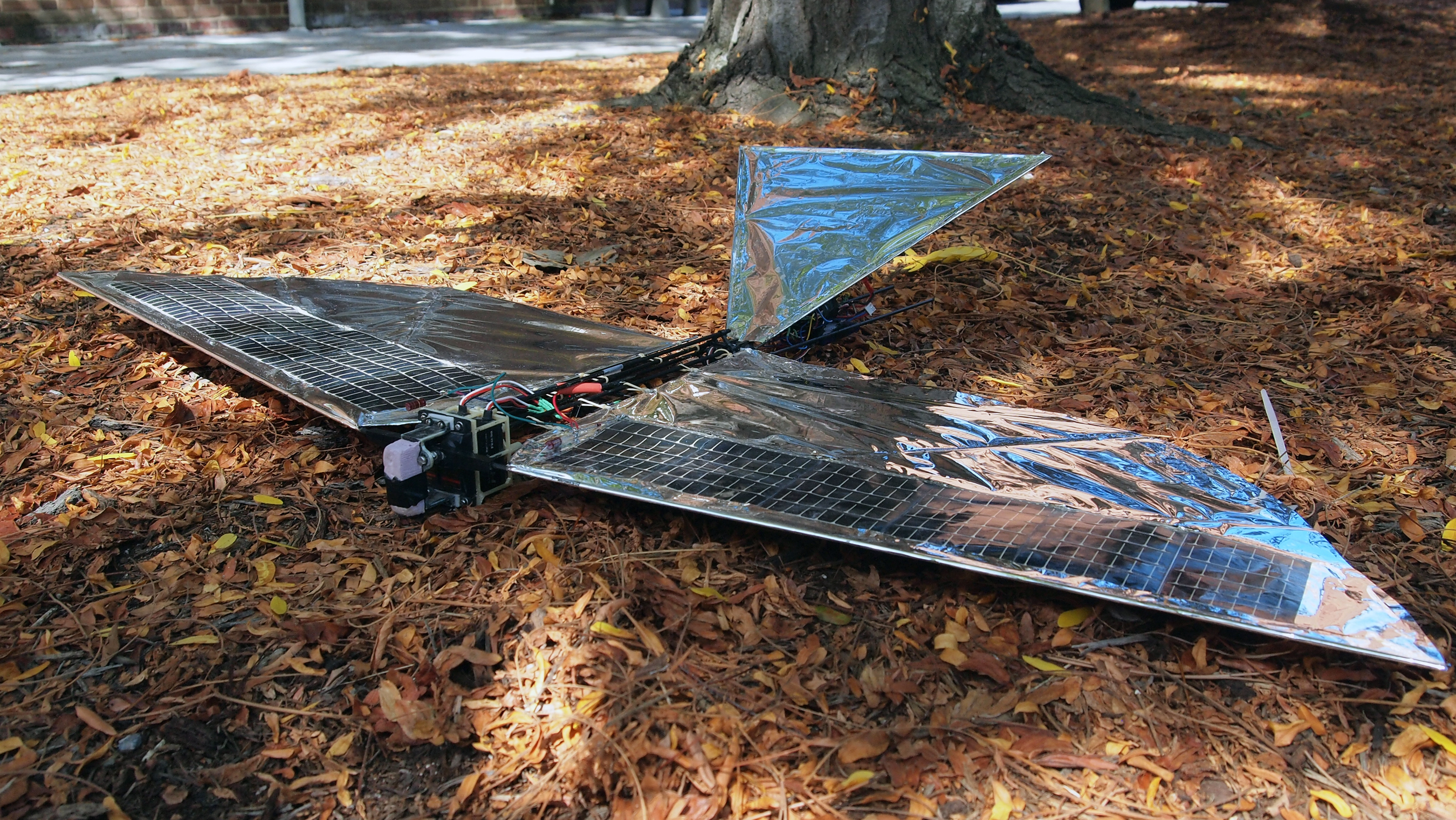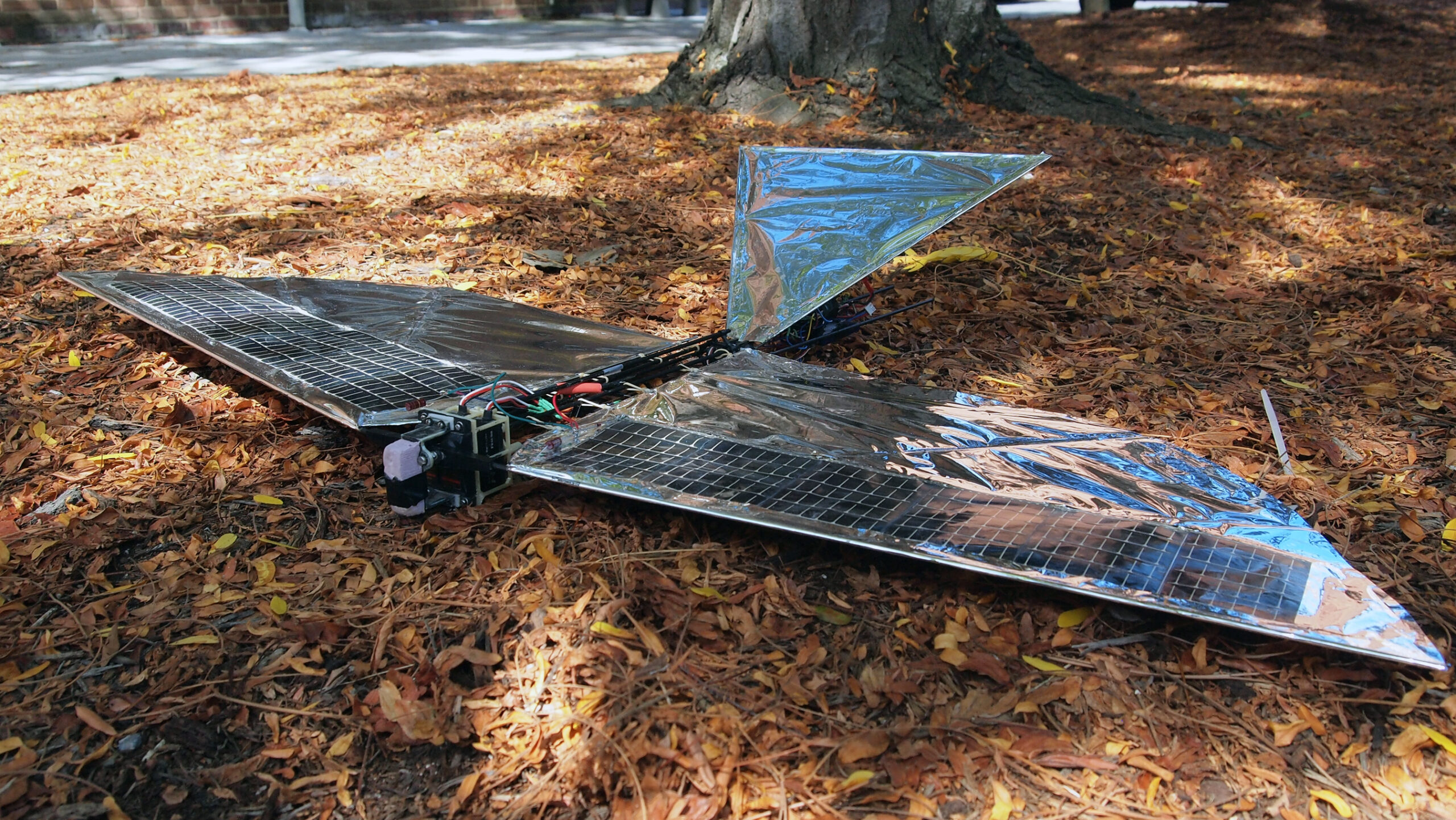Man has long envied the avian ability of flight. Wings offer the opportunity for flight, yes, but also for exploration and a different point of view. Now, three UMBC alumni are working to borrow that vantage point through the Robo Raven project at the University of Maryland, College Park. We spoke with Meyerhoff alumni Ariel Perez-Rosado ’11, M19, mechanical engineering; Luke Roberts ’12, M20, mechanical engineering; and Alex Holness ’13, M20, mechanical engineering, about their continued connection in graduate school and what it is like to work on this amazing micro air vehicle.
 Q: Why did you decide to study robotics?
Q: Why did you decide to study robotics?
Ariel: I never really intended to study robotics. I was more interested in materials and structures. However, when I started at College Park, I started working with the wings of a small robotic bird. When it came time to run more experiments I had to rebuild the same robot from scratch. No one else was working on the small bird so I had to figure things out on my own. I slowly started learning what it takes to make a robotic bird. I really enjoyed the project and in order for the project to grow, design changes needed to be made. By the time it came to make Robo Raven I had learned enough robotics to know what we needed to do to make a successful flying robot.
Luke: I decided to study robotics because I wanted to be able to make complete systems that integrated concepts from mechanical engineering, electrical engineering, and computer science and robotics utilizes each of those. I knew it would be challenging, and it definitely is, but I really enjoy what I am working on.
Alex: I have been fond of innovation and technology. Additionally, as cliché as it might be, I liked to build with Legos, K’nex, wooden blocks when I was a child. My parents encouraged and enabled me to explore my curiosities. I became a mechanical engineer because I liked to create things, understand processes and mechanisms, and applicable theoretical concepts. I ultimately decided to be robotics because I experienced a number of other subject topics at internships and didn’t find myself fond of them, and I am able to build things regularly. Robotics covers a variety of topics, which keeps the work interesting. Additionally, it is a cutting-edge field, which does make it viable for a future career.
Q: What inspired this project?
Ariel: Our lab has worked on Micro Air Vehicles for years, but recently the research took a new turn. We wanted to look at controlling each wing independently. This is something that birds do but has not been studied in robotics yet. In order to do this, the wings needed to be powered by independent motors. This means that the wings needed to be larger than ever before and calls for a whole new robot. So basically in an aim to study what actual birds in nature can do, Robo Raven was made.
 Q: What are the applications of a project like this?
Q: What are the applications of a project like this?
Luke: There are many applications for this platform. Robo Raven has the potential to be used in the future to monitor farms as a mobile scarecrow or crop inspector, fly at higher altitudes and track weather, or serve as recon for soldiers on the battlefield while looking like a normal bird to the eyes of the enemy. It could also give a push to the FWMAV hobbyist community because of the aerobatics it can perform.
Alex: The project could be used in disaster relief situations, such as gathering video and sensory data (such as chemical sensing). It could also be used in educational programs–bio-inspired robots cover so many disciplines. I remember my best educational experiences being tangible. I am in the process of arranging a visit to my high school to show Robo Raven to a robotics club as a teaching tool.
Q: What’s it like, as alumni of the Meyerhoff Scholars Program, to continue your work together at UMD?
Ariel: It is great to have other Meyerhoff Scholars to work with. I know exactly what they have gone through in terms of classes and experiences. This allows us to hold each other to higher expectations than other students.
Luke: It was really helpful to me that Ariel, whom I already knew, was in the lab when I first got there and helped me get settled in and just have a friend there. I was really excited when I heard Alex was coming because we were in the same cohort and actually roomed together during Summer Bridge. We also worked on a lot of projects together during our undergrad years.
Q: How has your time at UMBC helped you in your work and studies now?
Ariel: UMBC’s Mechanical Engineering Department gave us a great education and foundation in mechanical engineering. The transition from undergraduate school to graduate school was effortless and seemed like an extension of what was already being taught. The Meyerhoff Scholars Program did a great job in preparing us for the research side of graduate school. Thanks to their guidance, I knew what to expect when coming to graduate school. They prepared me and showed me the work ethic necessary to be a good researcher.
Luke: My time at UMBC helped me to learn to push hard, even when classes are ridiculously tough and life is difficult, because there’s a light at the end of the tunnel. I couldn’t see that light very well till the end of undergrad, and now that I’m in grad school and working on this project I see the light more clearly. Sometimes it pops out of my field of vision for a bit but that’s when I put my head down and push on. It comes back.
Alex: The strength of my graduate application and research skills are a result of applying to and completing internships at the admonition of UMBC staff, 5 in total, and, naturally, the academic content I learned at UMBC. UMBC taught me the importance of group collaboration for generating ideas in addition to management of personal assignments and tasks.
Tags: alex holness, ariel perez-rosado, Graduate school, luke roberts, Meyerhoff Scholars, micro aerial vehicle, robo raven, robotic bird, UMBC Alumni

